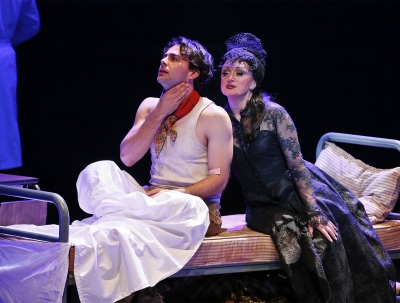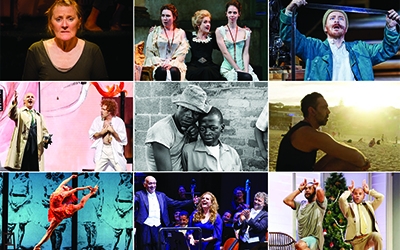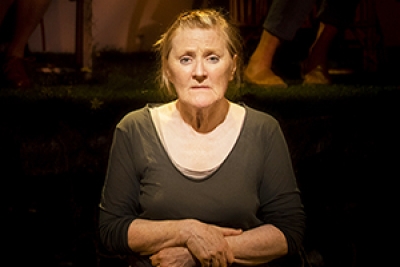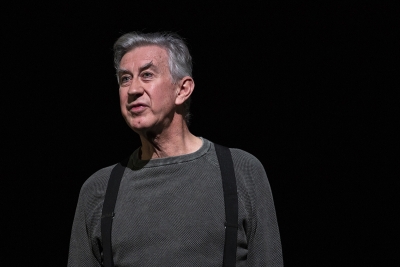Accessibility Tools
- Content scaling 100%
- Font size 100%
- Line height 100%
- Letter spacing 100%
Tim Byrne
The ABR Podcast
Released every Thursday, the ABR podcast features our finest reviews, poetry, fiction, interviews, and commentary.
Subscribe via iTunes, Stitcher, Google, or Spotify, or search for ‘The ABR Podcast’ on your favourite podcast app.
Feeding the beast: On corporate cancel culture
by Josh Bornstein
This week on The ABR Podcast, Josh Bornstein discusses corporate cancel culture. Bornstein argues that ‘Companies now routinely censor their employees far more repressively than any liberal democratic government does’. Josh Bornstein is an award-winning workplace lawyer and writer. His first book, Working for the Brand: How corporations are destroying free speech was recently published by Scribe. Listen to Josh Bornstein’s ‘Feeding the beast: On corporate cancel culture’, published in the November issues of ABR.
Recent episodes:
Argentine writer Manuel Puig’s 1976 novel Kiss of the Spider Woman seems to have shed most of its cultural specificity with each new iteration. Most people know it from the 1985 film that transposed the action to a Brazilian prison, for no conceivable reason other than the fact that the director was Brazilian (Héctor Babenco). The 1992 musical, with a book by Terrence McNally and music and lyrics by John Kander and Fred Ebb, goes a step further, and sets it in an undisclosed South American country – as if all political hells were the same, as long as they were subcontinental.
... (read more)To celebrate the year’s memorable plays, films, television, music, operas, dance, and exhibitions, we invited a number of arts professionals and critics to nominate their favourites.
... (read more)The great Spanish novelist Javier Marías includes a scene in A Heart So White (1992) where a translator deliberately mistranslates a conversation between two characters who obviously stand in for Margaret Thatcher and Felipe González. He does this to send a coded message to the other translator in the room, his future wife ...
... (read more)The idea of the outsider is, of course, a concept shared by all living beings; the jellyfish and the silverback gorilla alike have trained themselves to distrust a stranger. But there is something particular about the Australian suspicion of otherness, a ruddy and avuncular mask that hides an abiding, almost pathological, wariness...
... (read more)‘Terrible rage.’ It starts as a question; rhetorical, perhaps. ‘Terrible rage.’ It grows into a statement of fact, an undeniable proof. ‘Terrible rage. Terrible rage. Terrible rage.’ Eventually – in a slow but frightening crescendo, followed by an equally slow but heart-wrenchingly pathetic decrescendo ...
... (read more)Elizabeth Taylor played Maggie to Paul Newman’s Brick in Richard Brooks’s 1958 film adaptation of Tennessee Williams’s Cat on a Hot Tin Roof; a more perfect sexual promise left unfulfilled was never committed to celluloid. But if you want truly pyrotechnical sexual chemistry, it’s hard to look past Taylor’s onscreen work with her real-life husband Richard Burton ...
... (read more)How many variations does it take, how many iterations and transfigurations, before a work of mediocrity becomes a work of genius? And what about a life – at what point do the quotidian accretions of living come to represent a person’s entire existence? What does it actually mean to live an extraordinary life ...
... (read more)The World Only Spins Forward: The ascent of angels in America edited by Isaac Butler and Dan Kois
Twelfth Night was probably composed in 1601, and certainly no later than 1602. Hamlet has a more doubtful provenance, possibly written before 1601 but also certainly no later than 1602. It is not inconceivable that Shakespeare worked on them simultaneously, or back to back ...
... (read more)While the bulk of Samuel Beckett’s monumental reputation rests on the plays – especially the mid-career, mid-century works that include Waiting for Godot (1953), Endgame (1955–57), and Happy Days (1961) – it is the novels that afford the most prolonged, immersive access to his enduring concerns and ...
... (read more)










